
New Headway - Elementary Test Booklet
.pdf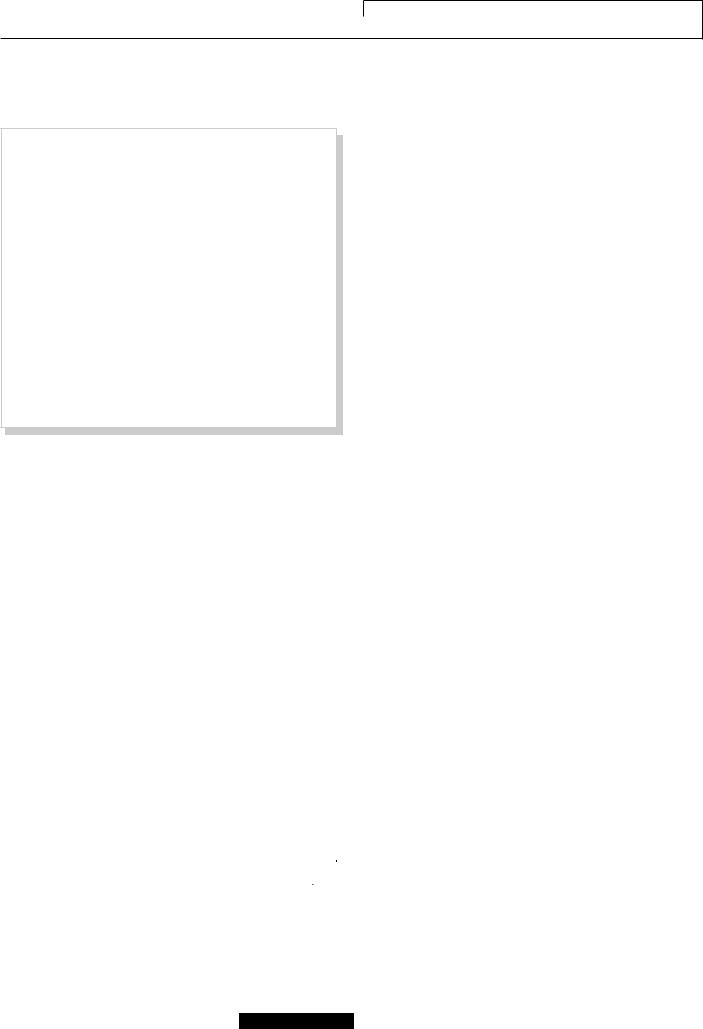
N A M E :
4 Read the text. Are the statements true ( ) or false ( )?
CHARLES DICKENS (1812 – 1870)
Charles Dickens is a famous writer in the English language. He wrote about the real world of England and many of the people in his books were not rich, but poor and hungry.
Charles Dickens’s family lived in London and his father worked in an office. It was a good job, but he always spent a lot of money and often there was no money to buy food. There were eight children in the family, so life was hard.
Charles went to school and his teachers thought he was very clever. But when Charles was only eleven, his father lost all his money and the family left their house. Charles got a job washing bottles. He worked ten hours a day and he earned six shillings (30p) a week. Every night, after work, he walked four miles back to his room. Charles hated it and never forgot it. He used it in many books, for example David Copperfield and Oliver Twist.
1 |
Charles Dickens was born in 1812. |
___ |
||
2 |
Charles Dickens wrote in English. |
___ |
||
3 |
Charles Dickens only wrote about rich people. |
___ |
||
4 |
Charles Dickens’ father had a job in an office. |
___ |
||
5 |
Charles Dickens’ life was difficult because he |
|
|
|
|
had eight children. |
___ |
||
6 |
Charles Dickens was good at school. |
___ |
||
7 |
Charles Dickens spent all his father’s money. |
___ |
||
8 |
Charles Dickens worked every night. |
___ |
||
9 |
Charles Dickens earned very little money. |
___ |
||
10 |
Oliver Twist was Charles Dickens’ friend. |
___ |
||
|
1 point for each correct answer |
|
|
|
|
|
|
10 |
|
|
|
|
|
|
5Write sentences about someone in your family. Where and when was he/she born? Where did he/she live when he/she was small? What did he/she study? What did he/she do in his/her free time? Also write about his/her first job.
(6 points for communication of ideas, 4 for grammatical accuracy, |
|
|
|
14 |
|
4 for lexis and use of link words) |
|
|
|
|
|
|
|
|
TOTAL |
|
100 |
|
|
|
New Headway Elementary © Oxford University Press P H O T O C O P I A B L E |
Test B U N I T 7 |
31 |
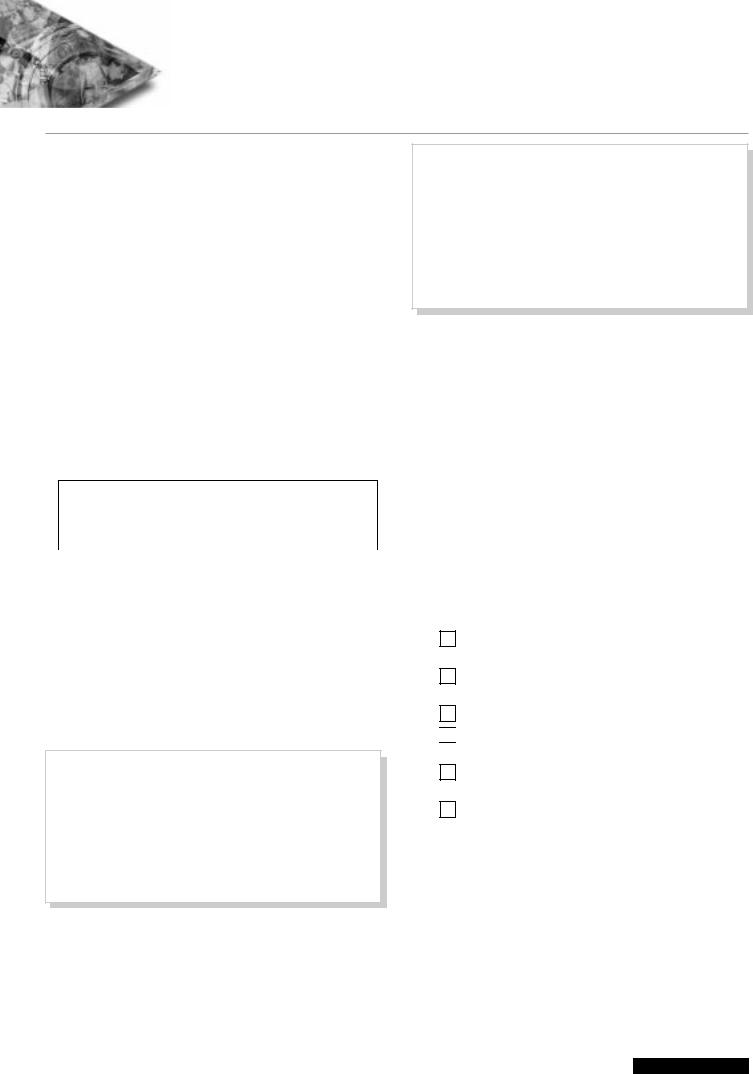
8 |
|
|
|
N A M E : |
|
|
|
|
|
Test A |
|
Poni˝szy test zawiera ró˝ne rodzaje çwiczeƒ. Przeczytaj uwa˝nie polecenie do ka˝dego çwiczenia i skorzystaj z podanych przyk adów.
1 Match the numbers and words.
1 |
k |
30th |
a |
third |
|
|
2 |
|
12th |
b |
twentieth |
|
|
|
|
|||||
3 |
|
2nd |
c |
thirty-first |
|
|
|
|
|||||
4 |
|
31st |
d |
tenth |
|
|
|
|
|||||
5 |
|
5th |
e |
first |
|
|
|
|
|||||
6 |
|
10th |
f |
twelfth |
|
|
|
|
|||||
7 |
|
21st |
g |
fifth |
|
|
|
|
|||||
8 |
|
1st |
h |
twenty-first |
|
|
|
|
|||||
9 |
|
4th |
i |
fourth |
|
|
|
|
|||||
10 |
|
20th |
j |
second |
|
|
|
|
|||||
11 |
|
3rd |
k |
thirtieth |
|
|
|
|
|||||
|
|
|
|
|
|
|
|
|
|
1 point for each correct answer |
|
10 |
|
|
|
|
|
|
|
|
2 Write the time expressions in the correct column.
Saturday morning weekends my birthday autumn
half past one the twenty-first century |
the afternoon |
|
Thursday |
November Christmas Day |
|
|
|
|
in |
at |
on |
______________ ______________ _______________
______________ ______________ _______________
______________ |
_______________ |
||
______________ |
_______________ |
||
|
1 point for each correct answer |
|
|
|
|
10 |
|
|
|
|
|
3 Read the text. Are the statements true ( ) or false ( )?
J E A N S
Two Americans, Jacob Davis and Levi Strauss, made the first jeans in 1923. Davis bought cloth from Levi’s shop. He told Levi that he had a special way to make strong trousers for workmen. The first jeans were blue. In 1965 jeans became fashionable for women after they saw them in Vogue magazine. In the 1990’s Calvin Klein earned $12.5 million a week from jeans.
T E L E V I S I O N
A Scotsman, John Logie Baird, transmitted the first television picture on 25 November, 1905. The first thing on television was a boy who worked in the office next to Baird’s workroom in London. In 1929 Baird sent pictures from London to Glasgow. In 1940 he sent pictures to New York, and also produced the first colour TV pictures.
1 |
Levi Strauss was English. |
___ |
2 |
Jacob Davis sold cloth in his shop. |
___ |
3 |
Levis Strauss and Jacob Davis made clothes for |
|
|
strong workmen. |
___ |
4Women saw jeans in a magazine and liked them. ___
5Calvin Klein earned $12.5 million in one week. ___
6 |
John Logie Baird was from Scotland. |
___ |
|
7 |
A boy sent the first television picture. |
___ |
|
8 |
Baird worked in London. |
___ |
|
9 |
Baird sent a television to Glasgow. |
___ |
|
10 |
In 1940 Baird moved to New York |
___ |
|
|
1 point for each correct answer |
|
|
|
|
10 |
|
|
|
|
|
4 Match the questions with a correct answer a–i.
1d Did you go out yesterday evening?
2 When did you start your new job?
3 Did he call his parents?
4 
 My grandmother is
My grandmother is
105 years old.
5 The cake you made was wonderful.
6 What did you do yesterday evening?
a Two months.
b I love my new job. c Thanks very much. d Yes, I did.
e No, thank you.
fTwo months ago.
g I’m not sure.
h We went to the cinema.
iI don’t believe it!
2 points for each correct answer |
|
10 |
|
|
|
32 U N I T 8 Test A |
New Headway Elementary © Oxford University Press P H O T O C O P I A B L E |
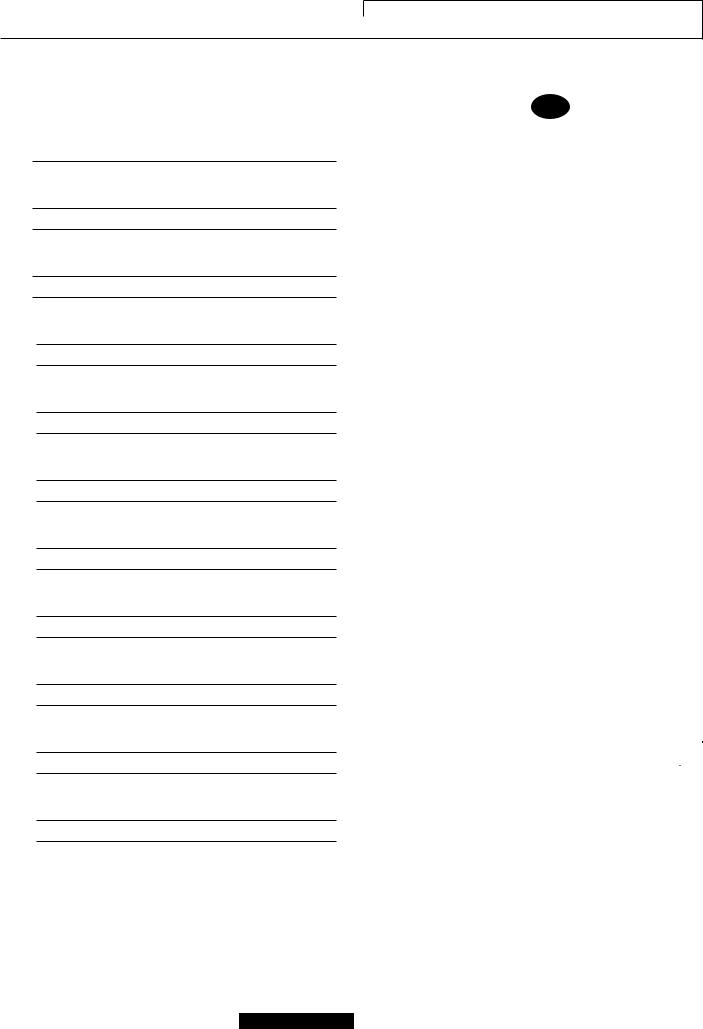
N A M E :
5Make the sentences negative.
1I drove to work yesterday.
I didn’t drive to work yesterday.
2My sister made a cake for my last birthday.
3We listened to the radio yesterday evening.
4 They took the bus into town last Saturday.
5 He went on holiday to Spain last summer.
6 You ate a lot at lunch time.
7 I wore my jeans at school.
8 They called their parents last week.
9 My friends wrote to me last month.
10You did all the shopping last Friday.
11I cooked dinner every day last week.
2 points for each correct answer |
|
20 |
|
|
|
6Complete the conversation. Circle the correct answer.
A Hi, Emma. How are you?
B Fine, thanks.
A And how’s John?
B John? John isn’t my boyfriend now. Dave is my new boyfriend.
A Oh, when (1) ___ Dave?
B We met (2) ___ . (3) ___ the eighth (4) ___ September.
A How (5) ___ ?
B I (6) ___ him in a disco and I fell (7) ___ love (8)___ his eyes.
A Can I ask you a question (9) ___ John?
B Yes, of course.
A Why did you leave John and go out with Dave?
B I (10) ___ John but I love Dave.
1 |
a |
you meet |
|
b did you meet c |
you met |
d |
you did |
|||||||||
|
meet |
|
|
|
|
|
|
|
|
|
|
|
|
|
|
|
2 |
a |
three months |
b |
before three months |
|
|
|
|||||||||
|
c |
from three months |
d |
three months ago |
|
|
|
|||||||||
3 |
a |
On |
b |
In |
c |
At |
d |
To |
|
|
|
|
|
|
||
4 |
a |
the |
b |
at |
c |
of |
d |
in |
|
|
|
|
|
|
||
5 |
a |
did you and Dave meet |
b |
did Dave meet |
|
|
|
|||||||||
|
c |
you and Dave met |
|
d did they meet |
|
|
|
|
||||||||
6 |
a |
meet |
|
b |
did meet |
c |
didn’t meet |
d |
met |
|
|
|||||
7 |
a |
on |
b |
in |
|
c |
into |
d |
to |
|
|
|
|
|
||
8 |
a |
from |
|
b |
of |
c |
with |
d |
to |
|
|
|
|
|
||
9 |
a |
about |
b |
|
to |
c |
by |
d |
of |
|
|
|
|
|
||
10 |
a |
loved |
|
b |
|
didn’t love |
c |
love |
d |
not love |
|
|
||||
|
|
|
|
|
|
|
|
|
|
|||||||
|
|
|
|
|
|
|
4 points for each correct answer |
|
40 |
|||||||
|
|
|
|
|
|
|
|
|
|
|
|
|
|
|
|
|
|
|
|
|
|
|
|
|
|
|
|
|
|
|
|
|
|
|
|
|
|
|
|
|
|
|
|
|
|
|
TOTAL |
|
100 |
|
|
|
|
|
|
|
|
|
|
|
|
|
|
|
|
|
|
New Headway Elementary © Oxford University Press P H O T O C O P I A B L E |
Test A U N I T 8 33 |
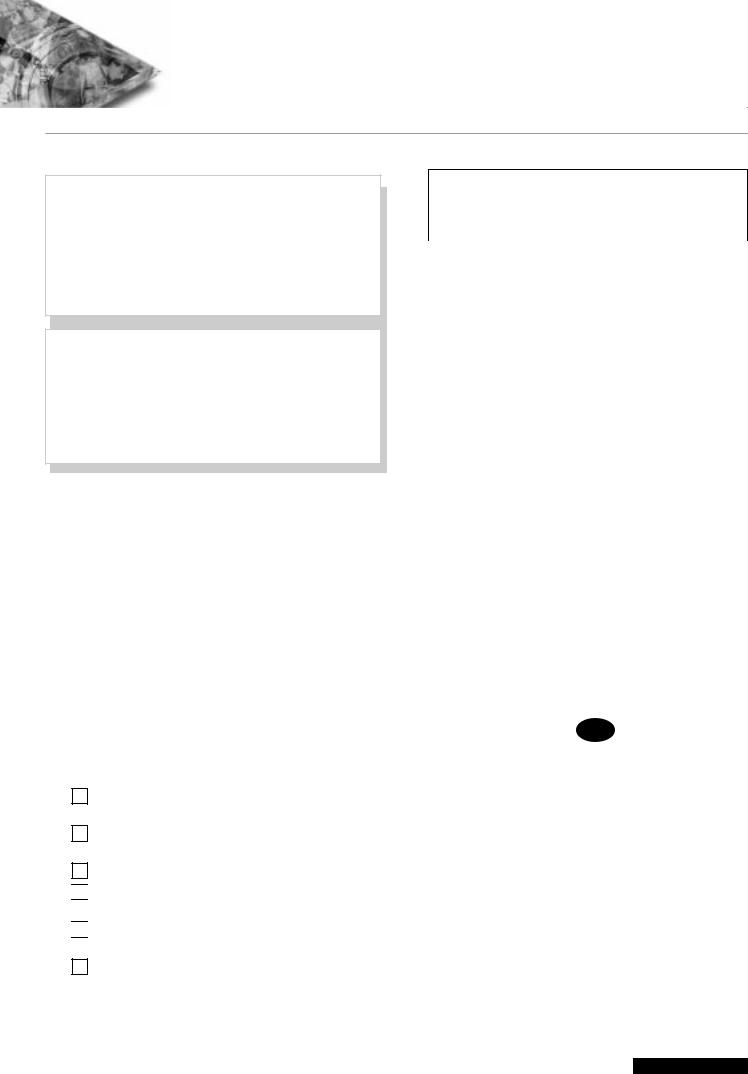
8 |
|
|
|
N A M E : |
|
|
|
|
|
Test B |
|
Poni˝szy test zawiera ró˝ne rodzaje çwiczeƒ. Przeczytaj uwa˝nie polecenie do ka˝dego çwiczenia i skorzystaj z podanych przyk adów.
1 Read the text. Are the statements true ( ) or false ( )?
J E A N S
Two Americans, Jacob Davis and Levi Strauss, made the first jeans in 1923. Davis bought cloth from Levi’s shop. He told Levi that he had a special way to make strong trousers for workmen. The first jeans were blue. In 1965 jeans became fashionable for women after they saw them in Vogue magazine. In the 1990’s Calvin Klein earned $12.5 million a week from jeans.
T E L E V I S I O N
A Scotsman, John Logie Baird, transmitted the first television picture on 25 November, 1905. The first thing on television was a boy who worked in the office next to Baird’s workroom in London. In 1929 Baird sent pictures from London to Glasgow. In 1940 he sent pictures to New York, and also produced the first colour TV pictures.
1 |
Levi Strauss was English. |
___ |
2 |
Jacob Davis sold cloth in his shop. |
___ |
3 |
Levis Strauss and Jacob Davis made clothes for |
|
|
strong workmen. |
___ |
4Women saw jeans in a magazine and liked them. ___
5Calvin Klein earned $12.5 million in one week. ___
6 |
John Logie Baird was from Scotland. |
___ |
|
7 |
A boy sent the first television picture. |
___ |
|
8 |
Baird worked in London. |
___ |
|
9 |
Baird sent a television to Glasgow. |
___ |
|
10 |
In 1940 Baird moved to New York |
___ |
|
|
1 point for each correct answer |
|
|
|
|
10 |
|
|
|
|
|
2 Match the questions with a correct answer.
1d Did you go out yesterday evening?
2 What did you do yesterday evening?
3 Did he call his parents?
4 
 When did you start your new job?
When did you start your new job?
5 
 My grandmother is
My grandmother is
105 years old.
6 The cake you made was wonderful.
a Two months.
b I love my new job. c Thanks very much. d Yes, I did.
e No, thank you.
fTwo months ago.
g I’m not sure.
h We went to the cinema.
iI don’t believe it!
3 Write the time expressions in the correct column.
Saturday morning weekends my birthday autumn
half past one the twenty-first century |
the afternoon |
|
Thursday |
November Christmas Day |
|
|
|
|
in |
at |
on |
______________ ______________ _______________
______________ ______________ _______________
______________ |
_______________ |
||
______________ |
_______________ |
||
|
|
|
|
|
1 point for each correct answer |
|
10 |
|
|
|
|
4 Match the numbers and words.
1 |
k |
30th |
a |
third |
|
|
2 |
|
21st |
b |
twentieth |
|
|
|
|
|||||
3 |
|
12th |
c |
thirty-first |
|
|
|
|
|||||
4 |
|
1st |
d |
tenth |
|
|
|
|
|||||
5 |
|
31st |
e |
first |
|
|
|
|
|||||
6 |
|
20th |
f |
twelfth |
|
|
|
|
|||||
7 |
|
2nd |
g |
fifth |
|
|
|
|
|||||
8 |
|
10th |
h |
twenty-first |
|
|
|
|
|||||
9 |
|
3rd |
i |
fourth |
|
|
|
|
|||||
10 |
|
4th |
j |
second |
|
|
|
|
|||||
11 |
|
5th |
k |
thirtieth |
|
|
|
|
|||||
|
|
|
|
|
|
|
|
|
|
1 point for each correct answer |
|
10 |
|
|
|
|
|
|
|
|
5Complete the conversation. Circle the correct answer.
A Hi, Emma. How are you? And how’s John?
B John? John isn’t my boyfriend now. Dave is my new boyfriend.
A Oh, when (1) ___ Dave?
B We met (2) ___ . (3) ___ the eighth (4) ___ September.
A How (5) ___ ?
B I (6) ___ him in a disco and I fell (7) ___ love (8)___ his eyes.
A Can I ask you a question (9) ___ John?
B Yes, of course.
A Why did you leave John and go out with Dave?
B I (10) ___ John but I love Dave.
2 points for each correct answer |
|
10 |
|
|
|
34 U N I T 8 Test B |
New Headway Elementary © Oxford University Press P H O T O C O P I A B L E |
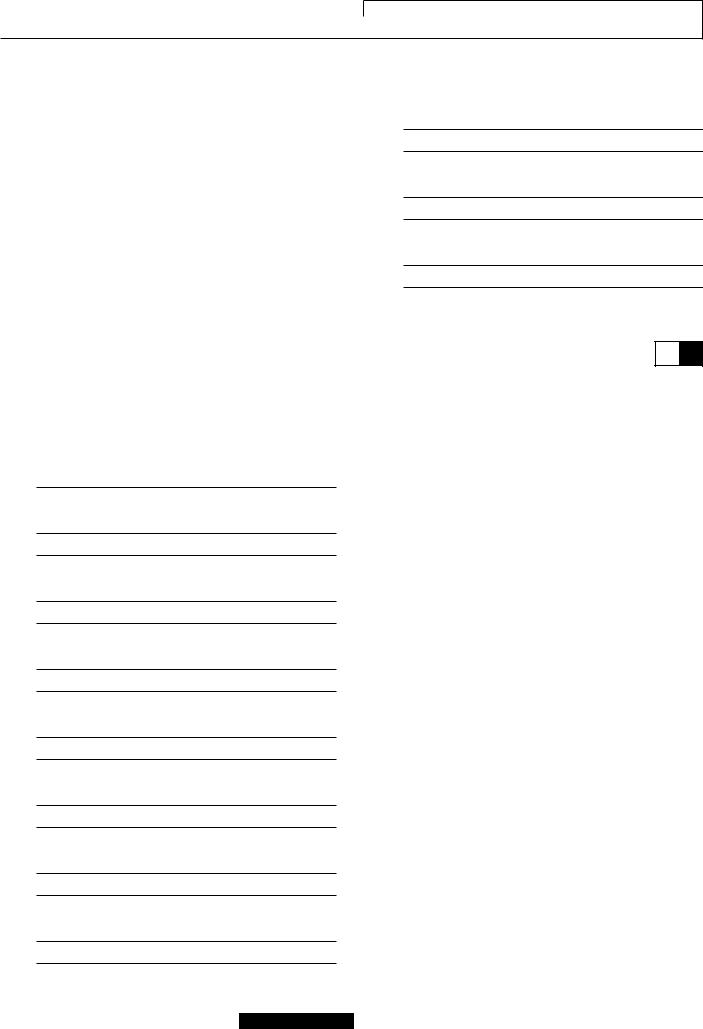
N A M E :
1 |
a |
you did meet |
b |
you met |
|
|
|
|
|||||||
|
c |
did you meet |
d |
you meet |
|
|
|
|
|||||||
2 |
a |
three months ago |
|
b |
from three months |
|
|||||||||
|
c |
before three months |
|
d |
three months |
|
|
|
|||||||
3 |
a |
To |
b |
At |
c |
In |
d |
On |
|
|
|
|
|||
4 |
a |
in |
b |
of |
|
c |
at |
|
d |
the |
|
|
|
|
|
5 |
a |
did they meet |
b you and Dave met |
|
|
|
|
||||||||
|
c |
did Dave meet |
d did you and Dave meet |
|
|||||||||||
6 |
a |
met |
|
b |
didn’t meet |
c |
did meet |
d |
meet |
|
|||||
7 |
a |
to |
b |
into |
|
c |
in |
d |
on |
|
|
|
|
||
8 |
a |
to |
b |
with |
|
c |
of |
|
d |
from |
|
|
|
|
|
9 |
a |
of |
b |
by |
c |
to |
d |
about |
|
|
|
|
|||
10 |
a |
not love |
b |
love |
c |
didn’t love |
d |
loved |
|
||||||
|
|
|
|
|
|
|
4 points for each correct answer |
|
|
||||||
|
|
|
|
|
|
|
|
40 |
|||||||
|
|
|
|
|
|
|
|
|
|
|
|
|
|
|
|
6 Make the sentences negative.
1 I drove to work yesterday.
I didn’t drive to work yesterday.
2I wore my jeans at school.
3My sister made a cake for my last birthday.
4They called their parents last week.
5They took the bus into town last Saturday.
6You did all the shopping last Friday.
7We listened to the radio yesterday evening.
8You ate a lot at lunch time.
9 I cooked dinner every day last week.
10My friends wrote to me last month.
11He went on holiday to Spain last summer.
2 points for each correct answer |
|
20 |
|
|
|
TOTAL 100
New Headway Elementary © Oxford University Press P H O T O C O P I A B L E |
Test B U N I T 8 35 |
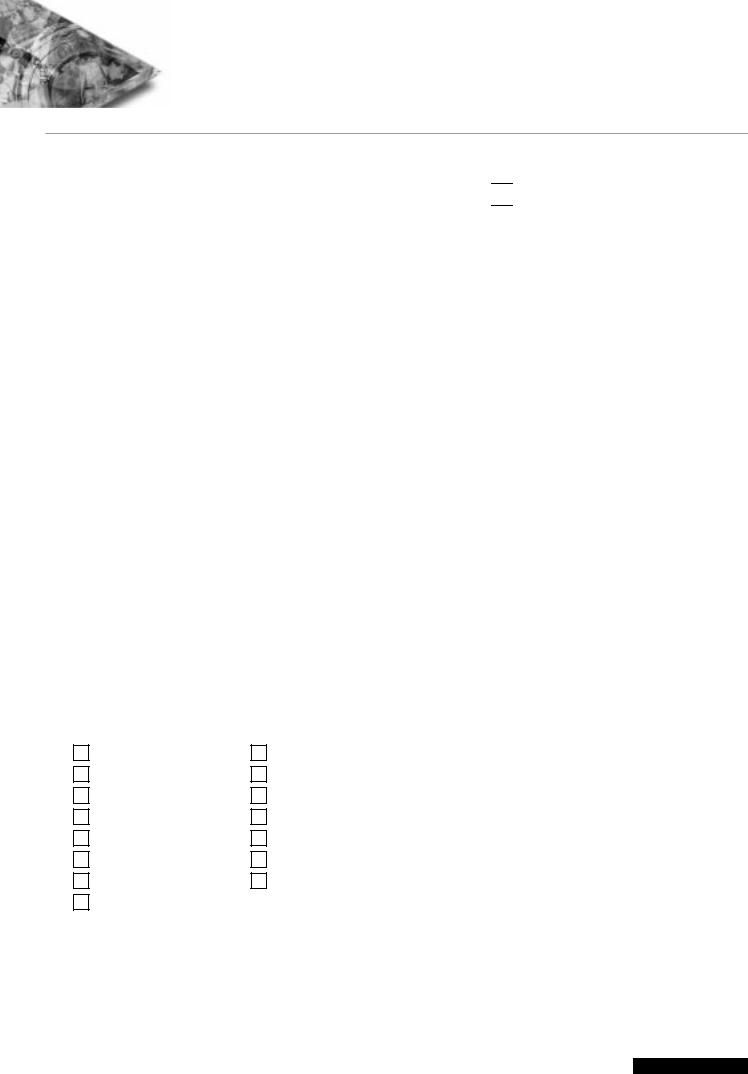
9 |
|
|
|
N A M E : |
|
|
|
|
|
Test A |
|
Poni˝szy test zawiera ró˝ne rodzaje çwiczeƒ. Przeczytaj uwa˝nie polecenie do ka˝dego çwiczenia i skorzystaj z podanych przyk adów.
1 Match the pictures to the names of the food and drink.
2 Are the nouns usually countable (C) or uncountable (U)?
|
|
|
1 |
book |
C |
7 |
biscuit |
___ |
|
|
|
|
|
2 |
water |
U |
8 |
glass |
___ |
|
|
|
|
|
3 |
wine |
___ |
9 |
meal |
___ |
|
|
|
|
|
4 |
fruit |
___ |
10 |
milk |
___ |
|
|
a |
b |
c |
5 |
apple |
___ |
11 |
egg |
___ |
|
|
|
|
|
|
|
|
|
|
|||
|
|
|
6 |
money |
___ |
12 |
cheese |
___ |
|
|
|
|
|
|
|
|
|
|
|
||
|
|
|
|
|
|
1 point for each correct answer |
|
10 |
||
|
|
|
|
|
|
|
|
|
|
|
3 Read the text. Are the statements true ( ) or false ( )?
|
d |
e |
f |
|
|
|
|
|
|
|
|
|
|
|
|
|
|
|
|
|
ME ALS IN BRITAIN |
|
|
||
|
|
|
|
|
|
|
|
|
|
|||
|
|
|
|
|
|
|
|
A typical full English breakfast is a very big meal – sausages, bacon, |
|
|||
|
|
|
|
|
|
|
|
eggs, tomatoes, mushrooms and of course toast. But nowadays |
|
|
||
|
|
|
|
|
|
|
|
many people don’t have time to eat all this and just have toast, or |
|
|||
|
g |
h |
i |
|
|
|
sometimes fruit and yoghurt. The typical breakfast drink is tea, |
|
|
|||
|
|
|
|
which people have with cold milk. Some people have coffee made |
|
|||||||
|
|
|
|
|
|
|
|
|
||||
|
|
|
|
|
|
|
|
with just hot water. Many visitors to Britain think this coffee is |
|
|
||
|
|
|
|
|
|
|
|
horrible! |
|
|
||
|
|
|
|
|
|
|
|
For many people lunch is a quick meal. In cities there are a lot of |
|
|||
|
|
|
|
|
|
|
|
sandwich bars, where office workers can choose the kind of bread |
|
|||
|
j |
k |
l |
|
|
|
they want, either brown or white, and then all sorts of salad and |
|
|
|||
|
|
|
|
meat or fish to go in the sandwich. Pubs often serve good, cheap |
|
|
||||||
|
|
|
|
|
|
|
|
food, both hot and cold. School-children can have a hot meal at |
|
|
||
|
|
|
|
|
|
|
|
school, but many just take a snack from home – a sandwich, a |
|
|
||
|
|
|
|
|
|
|
|
drink, some fruit, and perhaps some crisps. |
|
|
||
|
|
|
|
|
|
|
|
People eat their evening meal quite early, often at about six |
|
|
||
|
|
|
|
|
|
|
|
o’clock. A typical dinner is meat and vegetables, especially on |
|
|
||
|
m |
n |
o |
|
|
|
Sundays, when all the family eat together. |
|
|
|||
|
|
|
|
|
|
|
|
|
||||
|
|
|
|
|
|
|
|
|
|
|
|
|
|
|
|
|
|
|
|
|
|
|
|
|
|
1 e |
ice cream |
9 |
bananas |
|
|
|
1 |
Many British people don’t eat a full English |
|
|
||
|
|
|
|
breakfast. |
___ |
|
||||||
|
|
|
|
|
|
|
|
|
|
|||
2 |
wine |
10 |
tea |
|
|
|
2 |
Many British people choose toast for breakfast. |
___ |
|
||
|
|
|
|
|
|
|
|
|
||||
3 |
sandwiches |
11 |
oranges |
|
|
|
3 |
The typical drink with breakfast is coffee. |
___ |
|
||
|
|
|
|
|
|
|
|
|
||||
4 |
tomatoes |
12 |
apple juice |
|
|
|
4 |
Many visitors to Britain love British coffee. |
___ |
|
||
|
|
|
|
|
|
|
|
|
||||
5 |
bread |
13 |
chocolate |
|
|
|
5 |
A lot of British people have a sandwich |
|
|
||
|
|
|
|
|
|
|
|
|
|
|||
6 |
eggs |
14 |
grapes |
|
|
|
|
for lunch. |
___ |
|
||
7 |
rice |
15 |
apples |
|
|
|
6 |
Many offices in cities have sandwich bars. |
___ |
|
||
8 |
strawberries |
|
|
|
|
|
|
7 |
People can buy hot and cold food in a |
|
|
|
|
|
|
|
|
|
|
|
|
British pub. |
___ |
|
|
|
|
1 point for each correct answer |
|
14 |
|
|
8 |
Schoolchildren have a hot lunch at home. |
___ |
|
||
|
|
|
|
|
|
|
|
|
||||
|
|
|
|
|
|
|
|
9 |
British people usually have lunch at six o’clock. |
___ |
|
|
|
|
|
|
|
|
|
|
10 |
People in Britain often eat meat on Sundays. |
___ |
|
|
|
|
|
|
|
|
|
|
|
|
|
|
|
|
|
|
|
|
|
|
|
|
1 point for each correct answer |
|
10 |
|
|
|
|
|
|
|
|
|
|
|
|
|
|
36 U N I T 9 Test A |
New Headway Elementary © Oxford University Press P H O T O C O P I A B L E |
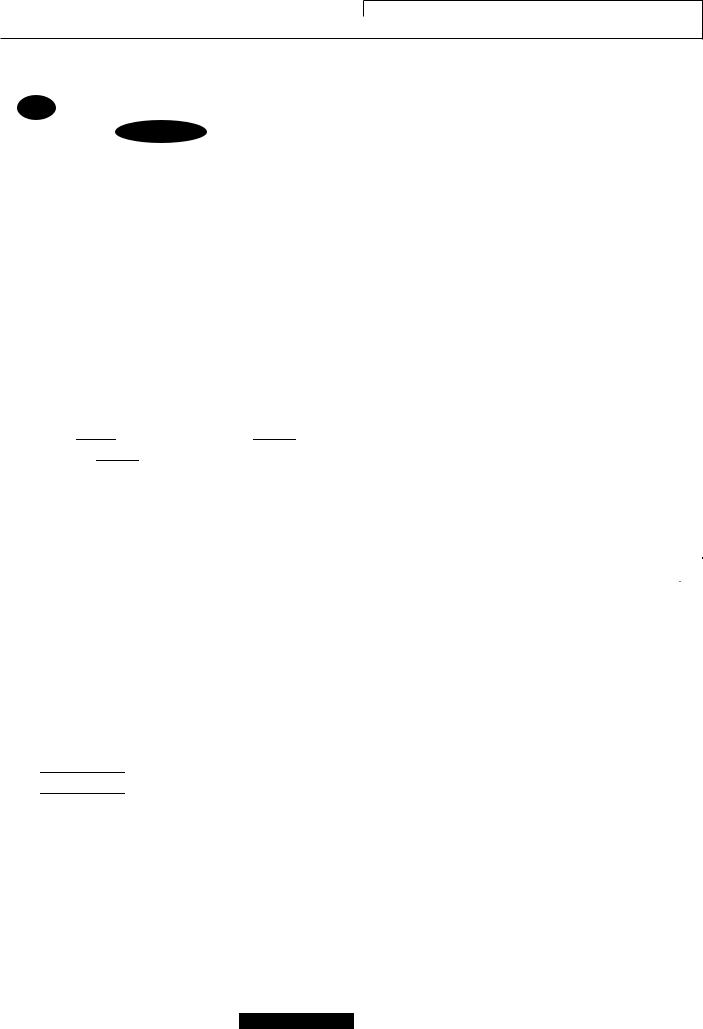
N A M E :
4Circle the correct alternative in each sentence.
1A Do you like / Would you like a drink?
B No, thanks. I’m not thirsty.
2A Do you like / Would you like French food?
B Yes, I love it.
3A Can I help you?
B Yes. I like / I’d like a cheese sandwich, please.
4A Do you like / Would you like some wine?
B Yes. A bottle of red, please.
5A What activities do you do? B I like / I’d like ice-skating.
6A Are you ready to order dessert?
B Yes. I’d like / I like some apple pie.
1 point for each correct answer |
|
5 |
|
|
|
5 Complete the sentences with a, an, some, or any.
1 |
I have a |
brother but I don’t have any sisters. |
2 |
There are |
some letters on the desk. |
3Is there ______ milk in the fridge?
4Would you like ______ sugar in your coffee?
5I’d like ______ strawberries, please.
6Can I have ______ Coke, please?
7There aren’t ______ plates in the cupboard.
8Would the children like ______ apple?
9We’d like ______ fruit for dessert.
10He’s thirsty. He’d like ______ beer.
11There isn’t ______ art gallery in this town.
12I can’t find ______ mushrooms in the kitchen.
2 points for each correct answer |
|
20 |
|
|
|
6 Complete the questions with How much or How many.
1 |
How much |
money do you spend in a month? |
2 |
How many |
sisters do you have? |
3 |
____________ |
hours of English do you study |
|
|
in a week? |
4____________ meat would you like?
5____________ free time do you have this week?
6____________ hours did you work last week?
7____________ carrots do you need for the recipe?
8____________ chocolate do you eat in a week?
9____________ holidays do you have a year?
10____________ is that?
11____________ people live in this city?
12 ____________ wine did he drink last night?
1 point for each correct answer |
|
10 |
|
|
|
7 Complete the requests with Can/Could I or Can/Could you.
1_____________ borrow your pencil, please?
2_____________ have the recipe, please?
3_____________ pass the fizzy water, please?
4_____________ lend me some CDs, please?
5_____________ see the cookbook, please?
6 |
_____________ |
help me do the crossword, please? |
||
7 |
_____________ |
buy me some stamps, please? |
|
|
8 |
_____________ |
watch the movie, please? |
|
|
|
|
|
|
|
|
|
2 points for each correct answer |
|
16 |
|
|
|
|
|
8Write three paragraphs about how people eat in Poland. Write about breakfast, lunch, and dinner.
(5 points for each paragraph: 2 for communication of ideas, |
|
15 |
2 for grammatical accuracy, 1 for lexis) |
|
|
|
|
|
|
|
|
TOTAL |
|
100 |
|
|
|
New Headway Elementary © Oxford University Press P H O T O C O P I A B L E |
Test A U N I T 9 37 |
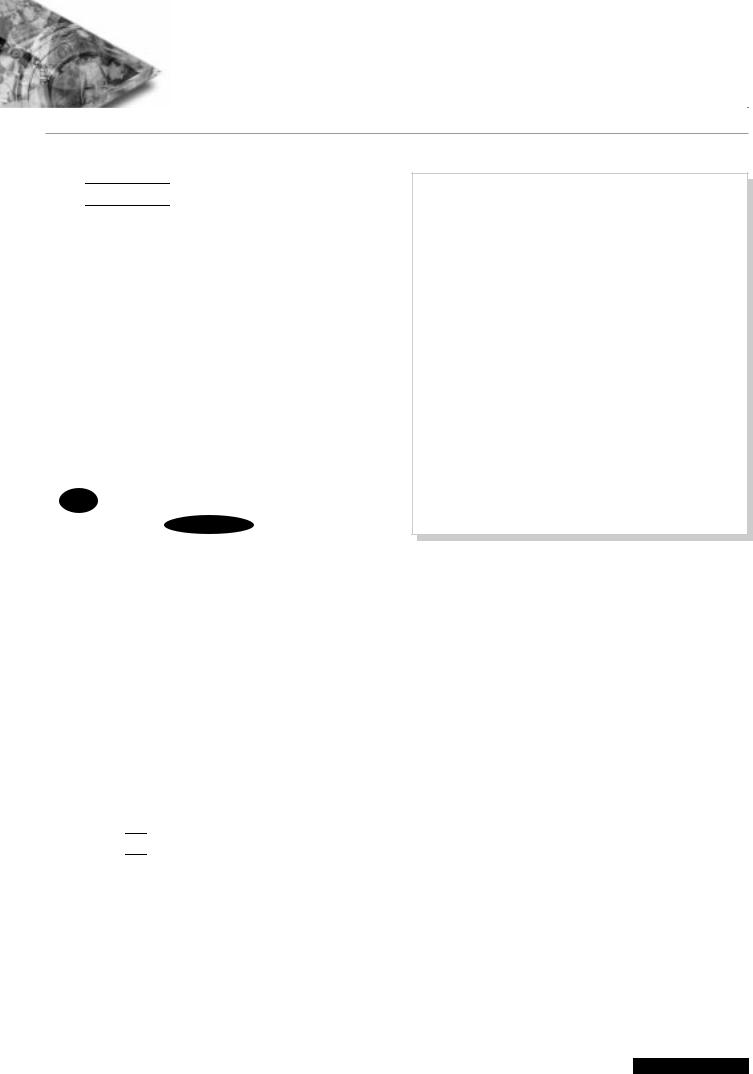
9 |
|
|
|
N A M E : |
|
|
|
|
|
Test B |
|
Poni˝szy test zawiera ró˝ne rodzaje çwiczeƒ. Przeczytaj uwa˝nie polecenie do ka˝dego çwiczenia i skorzystaj z podanych przyk adów.
1 Complete the questions with How much or How many.
1 |
How much |
money do you spend in a month? |
2 |
How many |
sisters do you have? |
3____________ hours did you work last week?
4____________ chocolate do you eat in a week?
5____________ hours of English do you study
in a week?
6____________ holidays do you have a year?
7____________ free time do you have this week?
8____________ people live in this city?
9____________ meat would you like?
10____________ carrots do you need for the recipe?
11____________ wine did he drink last night?
12 ____________ is that?
1 point for each correct answer |
|
10 |
|
|
|
2 Circle the correct alternative in each sentence.
1 A Do you like / Would you like a drink?
B No, thanks. I’m not thirsty.
4 Read the text. Are the statements true ( ) or false ( )?
ME ALS IN BRITAIN
A typical full English breakfast is a very big meal – sausages, bacon, eggs, tomatoes, mushrooms and of course toast. But nowadays many people don’t have time to eat all this and just have toast, or sometimes fruit and yoghurt. The typical breakfast drink is tea, which people have with cold milk. Some people have coffee made with just hot water. Many visitors to Britain think this coffee is horrible!
For many people lunch is a quick meal. In cities there are a lot of sandwich bars, where office workers can choose the kind of bread they want, either brown or white, and then all sorts of salad and meat or fish to go in the sandwich. Pubs often serve good, cheap food, both hot and cold. School-children can have a hot meal at school, but many just take a snack from home – a sandwich, a drink, some fruit, and perhaps some crisps.
People eat their evening meal quite early, often at about six o’clock. A typical dinner is meat and vegetables, especially on Sundays, when all the family eat together.
2 |
A Are you ready to order dessert? |
|
|
|
1 |
Many British people don’t eat a full English |
|
|
|||||
|
B Yes. I’d like / I like |
some apple pie. |
|
|
|
|
breakfast. |
|
|
___ |
|||
3 |
A Can I help you? |
|
|
|
|
|
2 |
Many British people choose toast for breakfast. |
___ |
||||
|
B Yes. I like / I’d like |
a cheese sandwich, please. |
|
3 |
The typical drink with breakfast is coffee. |
___ |
|||||||
4 |
A Do you like / Would you like French food? |
|
4 |
Many visitors to Britain love British coffee. |
___ |
||||||||
|
B Yes, I love it. |
|
|
|
|
|
5 |
A lot of British people have a sandwich |
|
|
|||
5 |
A What activities do you do? |
|
|
|
|
|
|
||||||
|
|
|
|
|
for lunch. |
|
|
___ |
|||||
|
B I like / I’d like ice-skating. |
|
|
|
|
6 |
Many offices in cities have sandwich bars. |
___ |
|||||
6 |
A Do you like / Would you like some wine? |
|
|||||||||||
|
7 |
People can buy hot and cold food in a |
|
|
|||||||||
|
B Yes. A bottle of red, please. |
|
|
|
|
|
|
||||||
|
|
|
|
|
|
British pub. |
|
|
___ |
||||
|
|
|
|
|
|
|
|
|
|
|
|||
|
|
|
|
|
|
|
|
|
|
|
|||
|
|
|
1 point for each correct answer |
|
5 |
8 |
Schoolchildren have a hot lunch at home. |
___ |
|||||
|
|
|
|
|
|
|
|
9 |
British people usually have lunch at six o’clock. |
___ |
|||
3 Are the nouns usually countable (C) or uncountable (U)? |
|
10 |
People in Britain often eat meat on Sundays. |
___ |
|||||||||
1 |
book |
C |
7 |
apple |
___ |
|
|
|
|
1 point for each correct answer |
|
|
|
|
|
|
|
|
|
10 |
|||||||
|
|
U |
|
|
|
|
|
|
|
|
|
||
2 |
water |
8 |
egg |
___ |
|
|
|
|
|
|
|
|
|
|
|
5 Complete the requests with Can/Could I or Can/Could you. |
|||||||||||
3 |
money |
___ |
9 |
fruit |
___ |
|
|
||||||
4 |
glass |
___ |
10 |
biscuit |
___ |
|
|
1 |
_____________ |
lend me some CDs, please? |
|
|
|
5 |
wine |
___ |
11 |
cheese |
___ |
|
|
|
|
||||
|
|
2 |
_____________ |
help me do the crossword, please? |
|||||||||
6 |
meal |
___ |
12 |
milk |
___ |
|
|
||||||
|
|
3 |
_____________ |
borrow your pencil, please? |
|
|
|||||||
|
|
|
|
|
|
|
|
|
|
||||
|
|
|
|
|
|
_____________ |
buy me some stamps, please? |
|
|
||||
|
|
|
1 point for each correct answer |
|
10 |
4 |
|
|
|||||
|
|
|
|
|
|
|
|
5 |
_____________ |
pass the fizzy water, please? |
|
|
|
|
|
|
|
|
|
|
|
|
|
||||
38 U N I T 9 Test B |
New Headway Elementary © Oxford University Press P H O T O C O P I A B L E |
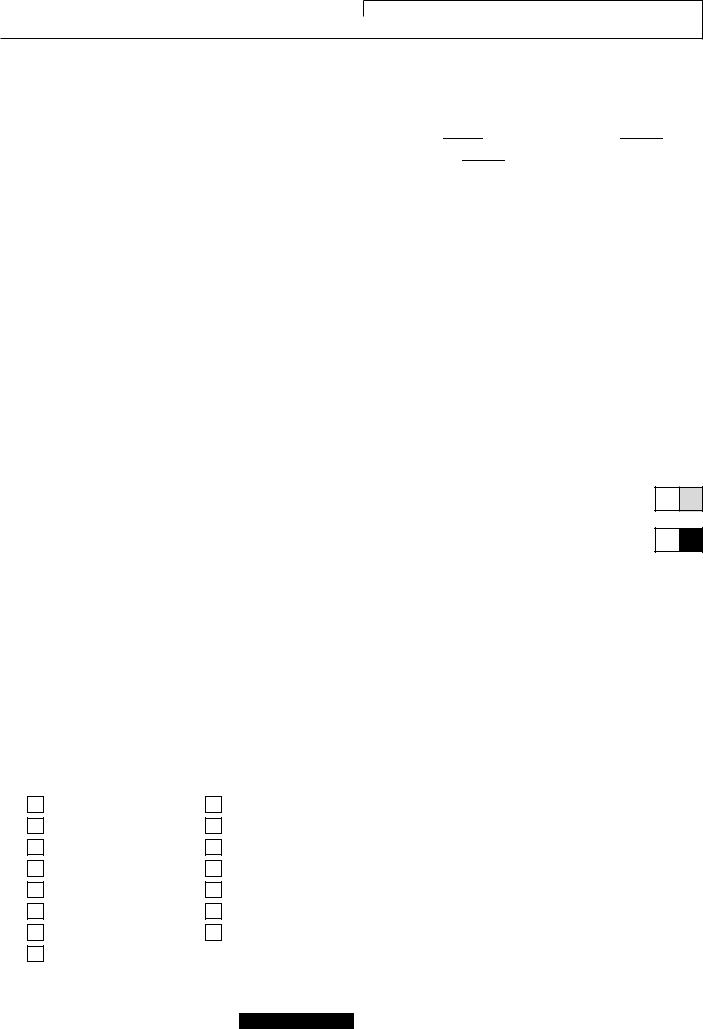
N A M E :
6_____________ watch the movie, please?
7_____________ have the recipe, please?
8 _____________ see the cookbook, please?
2 points for each correct answer |
|
16 |
|
|
|
6 Match the pictures to the names of the food and drink.
a |
b |
c |
d |
e |
f |
g |
h |
i |
|
|
|
|
|
|
|
|
|
|
|
|
|
|
|
|
|
|
|
|
j |
|
k |
l |
|
|
m |
n |
o |
|
|
1 |
o ice cream |
9 |
oranges |
|
|
2 |
eggs |
10 |
bananas |
|
|
3 |
chocolate |
11 |
apples |
|
|
4 |
strawberries |
12 |
grapes |
|
|
5 |
sandwiches |
13 |
tomatoes |
|
|
6 |
tea |
14 |
rice |
|
|
7 |
wine |
15 |
apple juice |
|
|
8 |
bread |
|
|
|
|
|
|
|
|
|
|
|
|
1 point for each correct answer |
|
14 |
|
|
|
|
|
|
|
7 Complete the sentences with a, an, some, or any.
1 |
I have a |
brother but I don’t have any sisters. |
2 |
There are |
some letters on the desk. |
3Can I have ______ Coke, please?
4Would the children like ______ apple?
5Is there ______ milk in the fridge?
6We’d like ______ fruit for dessert.
7I’d like ______ strawberries, please.
8There isn’t ______ art gallery in this town.
9Would you like ______ sugar in your coffee?
10There aren’t ______ plates in the cupboard.
11I can’t find ______ mushrooms in the kitchen.
12He’s thirsty. He’d like ______ beer.
2 points for each correct answer |
|
20 |
|
|
|
8Write three paragraphs about how people eat in Poland. Write about breakfast, lunch, and dinner.
(5 points for each paragraph: 2 for communication of ideas,
15
2 for grammatical accuracy, 1 for lexis)
TOTAL 100
New Headway Elementary © Oxford University Press P H O T O C O P I A B L E |
Test B U N I T 9 39 |
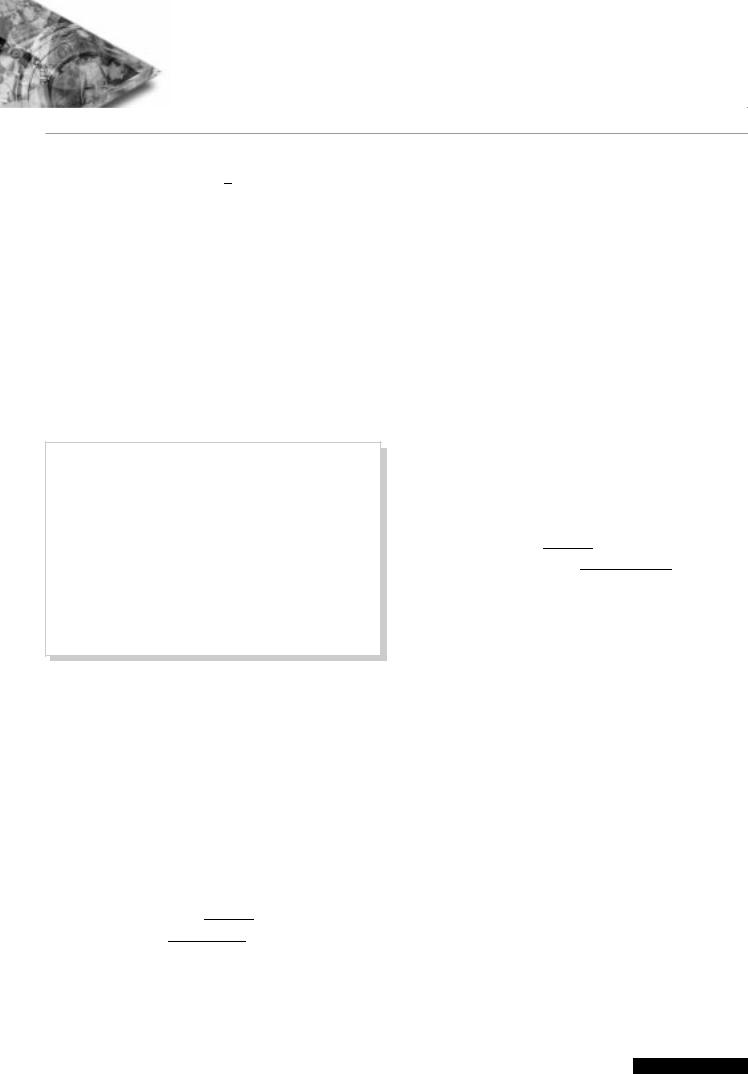
10 |
|
|
|
N A M E : |
|
|
|
|
|
Test A |
|
Poni˝szy test zawiera ró˝ne rodzaje çwiczeƒ. Przeczytaj uwa˝nie polecenie do ka˝dego çwiczenia i skorzystaj z podanych przyk adów.
1 Complete the sentences.
1 |
Good is the opposite of |
b |
a |
d |
|
|
|
|
|
|
_ . |
|
|
|
|
|
|||
2 |
Fast is the opposite of s _ _ |
_ . |
|
|
|
|
|
||
3 |
Exciting is the opposite of |
b _ |
_ |
_ _ _ . |
|
|
|
||
4 |
Cheap is the opposite of |
e _ |
_ _ _ _ _ _ _ . |
|
|
||||
5 |
Clean is the opposite of |
d _ |
_ |
_ |
_ . |
|
|
|
|
6 |
Quiet is the opposite of |
n _ |
_ |
_ |
_ . |
|
|
|
|
7 |
Safe is the opposite of d _ |
_ |
_ _ _ _ _ _ . |
|
|
|
|||
8 |
Friendly is the opposite of |
u _ |
_ |
_ _ _ _ _ _ _ . |
|
||||
9 |
Old is the opposite of m _ |
_ _ _ _ . |
|
|
|
||||
|
1 point for each correct answer |
|
|
|
|||||
|
|
|
8 |
||||||
|
|
|
|
|
|
|
|
|
|
2 Read the text. Are the statements true ( ) or false ( )?
V I E N N A
Vienna has a rich history. Its university opened in 1365, and is one of the oldest in Europe. From 1558 to 1806 it was the centre of the Holy Roman Empire and it became an important cultural centre for art and learning in the 18th and 19th centuries. The famous psychiatrist, Sigmund Freud, lived and worked there. Vienna was the music capital of the world for many centuries. Haydn, Mozart, Beethoven, Brahms, Schubert, and the Strauss family all came to work here. It is now the home of one of the world’s most famous orchestras, the Vienna Philharmonic. Its State Opera House is also world famous.
1 |
Vienna is a very rich city. |
___ |
|
2 |
Vienna was important from the 16th to the |
|
|
|
19th centuries. |
___ |
|
3 |
Vienna has a university which is hundreds of |
|
|
|
years old. |
___ |
|
4 |
Many famous psychiatrists lived in Vienna. |
___ |
|
5 |
Today Vienna is famous for its music. |
___ |
|
|
|
|
|
|
1 point for each correct answer |
|
5 |
|
|
|
|
3Complete the sentences using the comparative form of the adjective in brackets.
1 The country is much cleaner than the city. (clean)
2I think Paris is more beautiful than London. (beautiful)
3Dogs are __________________ than cats. (noisy)
4I think maths is __________________ than English. (boring)
5Noise in the city is __________________ than in the country. (bad)
6His horse was __________________ than the others. (slow)
7I think skiing is __________________ than iceskating. (dangerous)
8Our last test was __________________ than this one. (difficult)
9My house is __________________ from town than your house. (far)
10CDs are __________________ than cassettes. (expensive)
11London is __________________ than Manchester. (big)
12I think American music is __________________
than British music. (good)
2 points for each correct answer |
|
20 |
|
|
|
4Complete the sentences using the superlative form of the adjective in brackets.
1 |
That shop is the oldest |
building in the street. (old) |
2 |
They always stay at the |
most expensive hotel in |
|
London. (expensive) |
|
3These streets are _____________________ in the whole town. (dirty)
4I think New Orleans is one of ________________
cities in the world. (exciting)
5Which is _____________________ city in Europe? (high)
6They have _____________________ garden in the street. (pretty)
7Learning to drive was _____________________
thing in my life. (difficult)
8Which is _____________________ planet from Earth? (far)
9Who’s _____________________ person in your family? (intelligent)
10Where can I find _____________________ food in London? (good)
11They bought _____________________ car that they could find. (cheap)
12I went to New York last year. It was
_____________________ holiday in my life. (bad)
2 points for each correct answer |
|
20 |
|
|
|
40 U N I T 1 0 Test A |
New Headway Elementary © Oxford University Press P H O T O C O P I A B L E |
